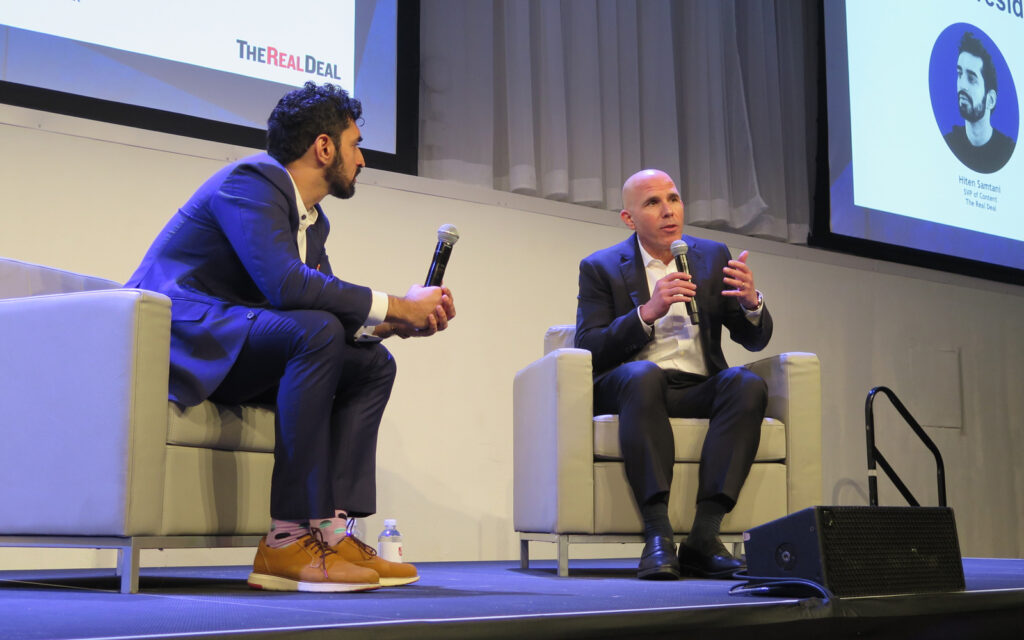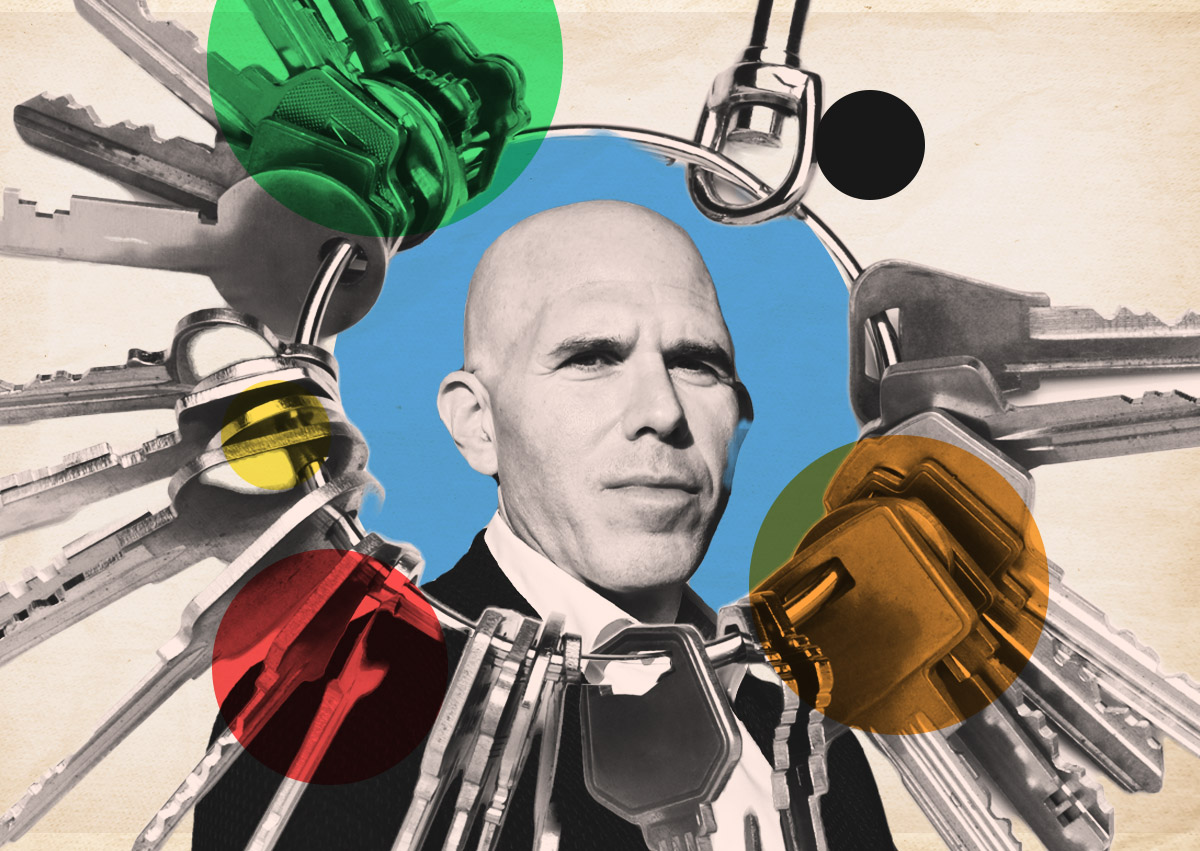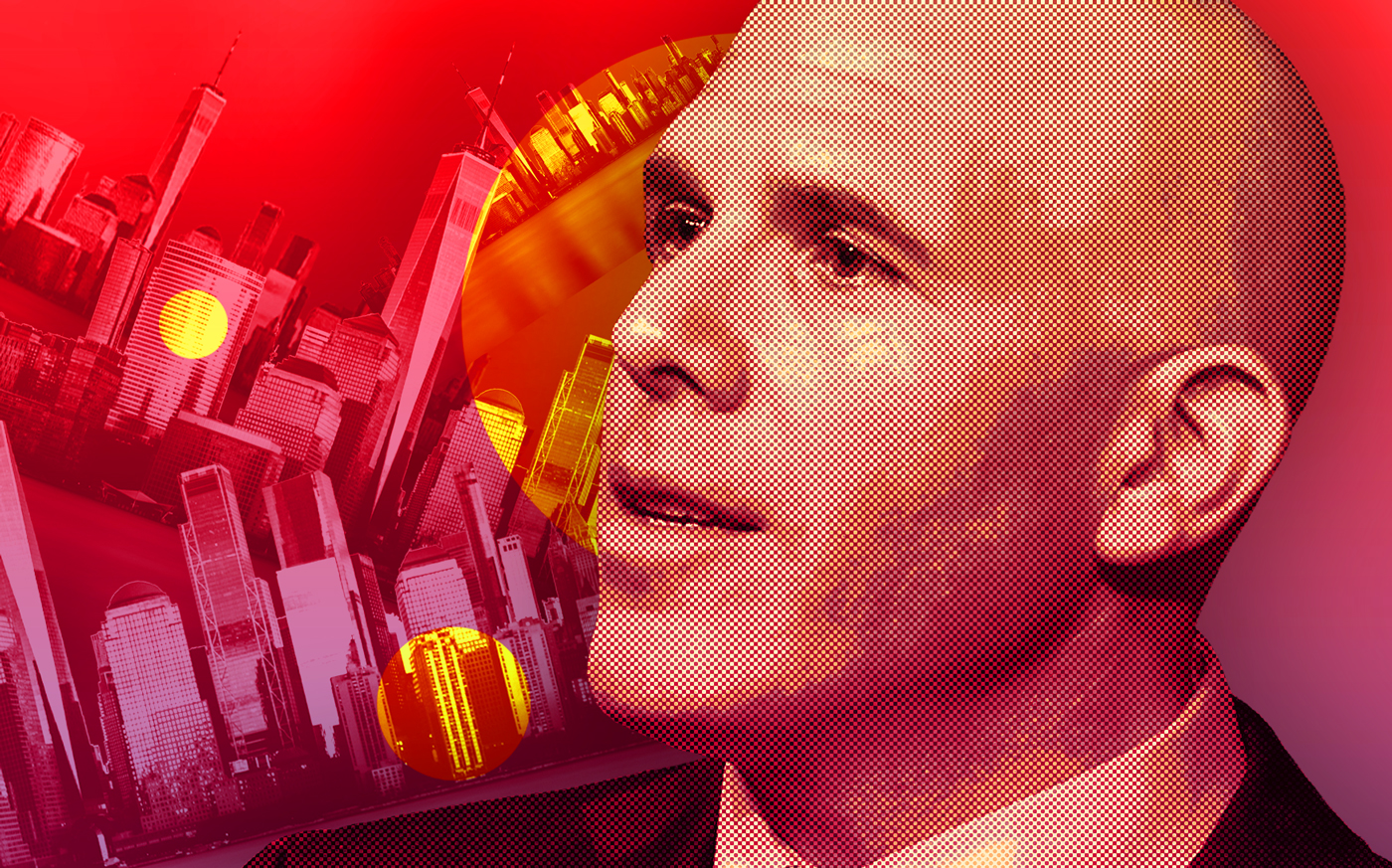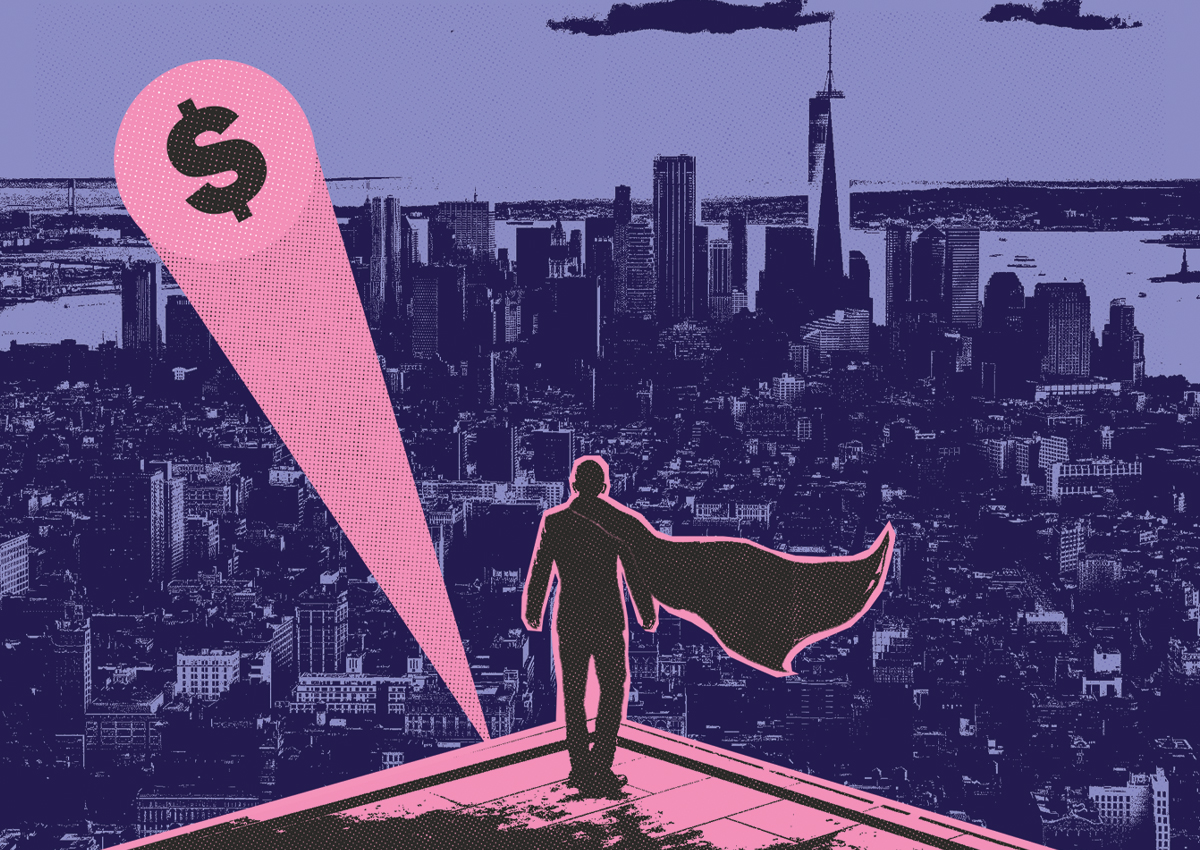Land and expand. Project Kodak. Crossing the chasm.
Name a challenge facing commercial real estate, and Scott Rechler’s got a solution — complete with a catchy slogan.
When it comes to the regional banking crisis, the RXR CEO said at The Real Deal’s showcase Thursday afternoon that he disagrees with JPMorgan chief executive Jamie Dimon, who declared the first phase of the credit crisis over this week when his firm bought First Republic Bank.
“I think it’s dangerous to say this is the end of a phase, because we’re talking about confidence,” Rechler said. “Jamie Dimon is someone that we all have confidence in and to the extent that it turns out to be wrong, that further undermines people’s confidence.”
“If he doesn’t know, how are we going to know about this?” Rechler added. “He’s pretty attuned to that stuff.”
Rechler said debt for commercial real estate has been contracting since Silicon Valley Bank’s stock tanked 60 percent on March 9. In New York, borrowers still rely heavily on big banks, but in other markets like Phoenix or Denver, regional banks are often the only game in town.
Contagion in the regional banks could therefore be a big problem as a $1.5 trillion wall of commercial real estate maturities hits.
The solution the RXR chief has been promoting is twofold: Land: create a soft landing by allowing lenders to restructure good loans and avoid dumping troubled ones in a fire sale that forces other banks to write down the values of their loans.
Then, expand: loosen regulations and allow lenders to get back to making loans to refinance those maturities. Rechler said this can be done if regulators take a more nuanced look at both the legacy and new loans on banks’ books.
“The new loans that you’re originating today, those are going to be the best loans that you’ve ever made,” he said.
RXR has stepped into the void and become much more active as a lender. The company set aside $2 billion to make high-yield loans and changed its fund structure to give it more versatility as to where it deploys that capital.
Rechler said he’s working to finance struggling residential and office projects. The company is even working with homebuilders to buy up single-family rental inventory in the Sun Belt.

“Project Kodak” is RXR’s evaluation of its own portfolio — deciding which properties are analogous to film and thus need to be repurposed, and which ones are akin to digital images that can survive and flourish going forward.
Rechler said he’s looking at building fundamentals (not capital structures) and has a couple of “film” buildings he’s considering repurposing. But he said some of the “digital” buildings can also make for good mixed-use conversions.
“So we have, I would say, six big buildings where we’re looking at converting them to mixed use — taking the towers of some of those buildings and making them residential or a hotel,” he said.
When it comes to artificial intelligence’s impact on office jobs and real estate, Rechler said he calls this period “crossing the chasm.”
“We’re crossing the chasm from this abnormal Covid period to what’s going to be a new normal,” he said. “It’s much more turbulent than any of us anticipated and it’s still going to be more turbulent until we get to the other side.”
Rechler acknowledged that AI is likely to eliminate some jobs, but said he thinks the innovations will lead to broader benefits.
“So it’s going to give us a chance to rise to a whole nother level as an industry and as a country,” he said. “Yes, there’s a transition, but I would sacrifice the transition for what’s on the other side.”
Read more



